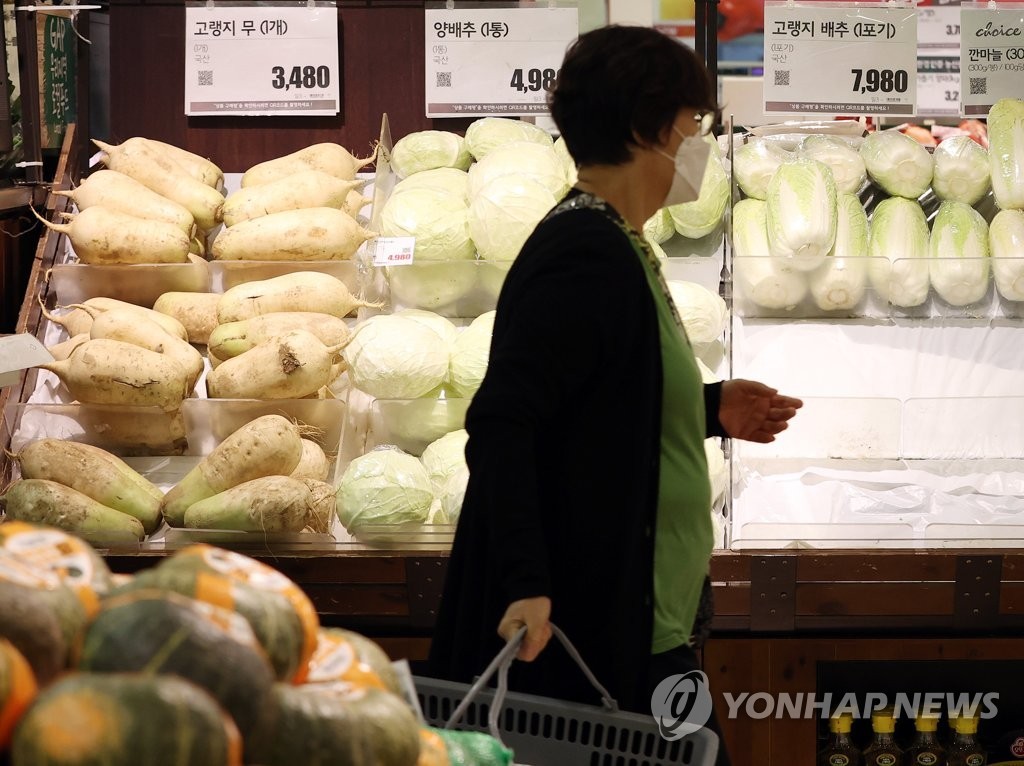 |
A shopper browses groceries at a discount store in Seoul. (Yonhap) |
South Korea’s consumer prices grew at the fastest clip in 14 months in March, since the coronavirus pandemic dealt a serious blow to the nation’s economy early last year, according to a report Friday.
The price for spring onion, in particular, grew by more than 300 percent over the course of a year, marking the steepest growth in 26 years and 11 months. The surging price of scallion is thought to be one of the main reasons behind the soaring prices of agricultural products.
The report released by the state-run Statistics Korea showed that the consumer price index came to 107.16 last month, up 1.5 percent from a year earlier. The growth rate is the highest since the CPI reached the same level in January last year. The index gauges the average price change of goods and services from a base year. In the report, the base year, usually set to 100, was 2015.
The steep CPI rise was driven by surging prices of agricultural, fisheries and livestock products due to poor harvest and aviation influenza, in addition to rising oil prices and service charges, including apartment maintenance and insurance fees, the agency explained.
Prices of agricultural, fisheries and livestock products rose 13.7 percent on-year while those of vegetables jumped 18.8 percent. Due to the impact of the prolonged rainy season and a number of typhoons, the price of scallion jumped 305.8 percent -- the highest since April 1994. The statistics agency said the scallion price will likely stabilize from this month, thanks to increased supply.
Prices for apple and dried pepper powder also rose by 55.3 percent and 34.4 percent, respectively.
Despite government efforts to stabilize the housing market, rent prices increased 1 percent on-year.
“Soaring oil prices and improved consumer sentiment, among others, have triggered the rise of consumer prices,” said Eo Woon-sun, a senior official from Statistics Korea. “Low consumer prices in April and May last year will likely result in relatively high inflation figures in the same months this year.”
From January to March last year, the CPI remained above 1 percent, but it dropped to 0.1 percent in April last year and further tumbled to negative 0.3 percent. Since it rebounded to zero in June last year it has been on an upward trend, and has remained at around 1 percent since February this year.
By Kim Young-won (
wone0102@heraldcorp.com)







![[Weekender] Korea's traditional sauce culture gains global recognition](http://res.heraldm.com/phpwas/restmb_idxmake.php?idx=644&simg=/content/image/2024/11/21/20241121050153_0.jpg)
